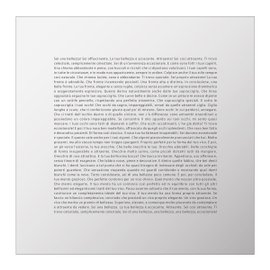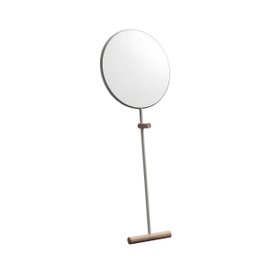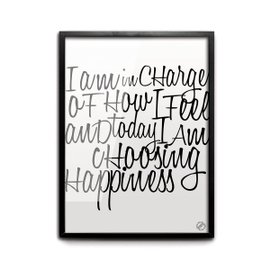Previous
What’s it like to work for a Startup or a tech company


Your dream house is one step away from you.
Subscribe to our newsletter and get 10% off orders of at least 100€!
Enjoy it and don’t miss out on our offers and updates.


For how long does an egg boil for? The upgrade of my Android phone has stopped: what should I do? How do I remove a balsamic vinegar stain from my T-shirt? I must have asked the Internet these same questions at least five times over. At this stage I should know the answer, but I can never hold it in my memory. I prefer to type in the question every single time. Just to be on the safe side, I tell myself.
I can still remember my Greek and Latin high-school teacher chanting: You don’t need to memorize anything, it’s all in the dictionary. This damaging assurance that requires from us the minimum amount of concentration, has naturally evolved into: you can always look it up online. For example, I’ve just been looking for a synonym for assurance, instead of doing my best to find one by myself and carrying on writing. Why did I let you go to university? my father would say, as my literature degree falls to pieces.
The truth is that we’re all undeniably dependent on technology to resolve any problem, even the most immediate. What will the weather be like tomorrow? I can check on Google Now right away. I wonder how Simone is doing – I’m not going to write to him, I’ll check on Facebook or Instagram: everything is OK, he posted a feed during the weekend. I’ll log off now and get on with my day.



The alarm clock on your smartphone wakes you up each morning. While you are brushing your teeth you check the time on the screen. You catch the train and you read another chapter of your eBook, as you get on the bus you check the emails on your smartphone. You get to the office and turn the computer on, ready to spend at least eight hours in front of its screen. During your coffee break you check the home page of a social network, your chin doubled down towards your chest as if you were doing neck exercises – except that you aren’t.
You behave in the same way when you're on the bus again and you check a video on YouTube. Then on the train you watch the last episode of your favourite Netflix TV series on your tablet, while you’re chatting with a friend on WhatsApp via your smartphone and asking your better half what you should get for dinner before sending off your order on Deliveroo.

According to Liz Soltan, our online behaviour and the repercussions it has on our real life have yet to be classified as disorders, but there is no denying that technology is affecting the way our minds operate.
Thinking about it, maybe technology has never done us any good: when writing was invented it came, in the first instance, with the sore legs of the Sumerian scribe, and then turned into the backache and poor eyesight of the scrolling monk. Now, the problem is the psychological impact – seen as regression and imposed effort – that technology has on us.
The #internetsickness is real: so I’ve been told by Urban Dictionary, the website I use to update my online vocabulary. And indeed, the sense of nausea that you get from using the internet on a daily basis is becoming more and more common and perceived as a real problem.
It’s not just about the brightness of the screen, assuming a wrong posture or having an opposable thumb – in the sense that it’s trying to fight the urge to scroll the news-feed one more time and it tells you so with frequent cramps. With scaremongering, fake news, disheartening stats and a constant stream of news, the majority of the people using the internet aren’t happy. How do I know this? I checked on Google:
Paradoxically, however, you can rarely find a solution offline: most people react to Internet nausea...by browsing the Internet. This is done by building your own bubble and hiding or deleting from your news-feed any type of negativity or unwanted person, or letting others know about your unhappiness through tweets and comments. For example, indulging in conspiracy theories is an end in itself: it subscribes to the idea that there could be an alternative to a world we aren’t happy about. But, instead of changing this, we are stranded focusing on the shadows at the back of the cave and pointing at them. With our smartphone, obviously.




There’s always a screen between us and the world: just as Dante suggested when, worrying that he might compromise Beatrice, he addressed his whispers to a mystery woman who I called... a screen, as a matter of fact. A screen filters, protects and at the same time is also at our total service. So, why haven’t we learned how to use it? Why do we feel the pressure to keep up with the latest technology? And above all, where is it all going?
For example, the Snapchat Spectacles, launched earlier in the year, suggest an answer to who knows whose question which sounds pretty much like this: why keep using a Smartphone if you can Snapchat directly from your glasses? Perhaps, we’ll never know for sure, but just because Instagram brought out its own Stories, beating the competition and even taking over its filters – all this before we had time to wonder what was happening.
Did we dodge a bullet? Really? Or did we just swap one technological threat for another? The designer Stella Shen has tried to answer the same question with her Infinite Loop of Technology, a collection of work that denounces the vicious circle in which technology is embroiled: trying to resolve a problem created by technology X not by improving it, but by replacing it with technology Y.
Without resorting to Stella Shen’s radical proposals, which include an immobiliser and a cattle prod, there are many suggestions as to how to use the Internet and technological devices in a safe way. And it’s all on the Internet, obviously.
If you can reduce the hours you spend in front of a screen, just because it’s the main part of your job, then you can try to practice a little bit of “mindfulness” - that means being more aware.
Why am I using my Smartphone now? Do I need to? Can I wait? Will I be better or worse off later? Asking yourself these questions will help you to reduce your Internet usage, not as an imposition – we’ve all tried to diet at least once in our lives: we know that this is not the way to make it work. The trick is to be convinced that you are doing it because it’s beneficial.





Goods
Joop Steenkamer
Home Accessories
Gifts
Maurizio Cattelan e Pierpaolo Ferrari
Seletti
Ex.t
FLYTE
Free Shipping
Kreafunk
Marcantonio Raimondi Malerba
Lighting
The best of Design
Lighting
Dining
Alessandro Dubini
Crosley
MM House Design
SNUG.STUDIO
Selab
Black Friday Seletti

 Back to
Back to
Size*
Quantity*




